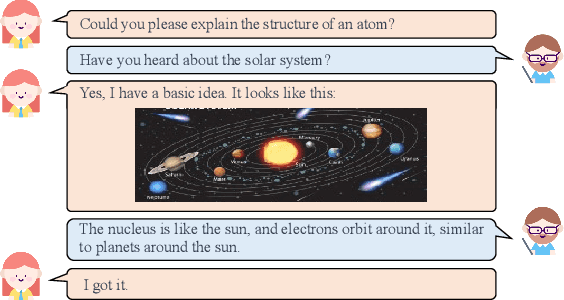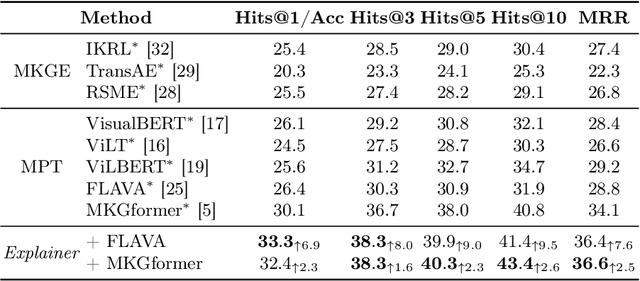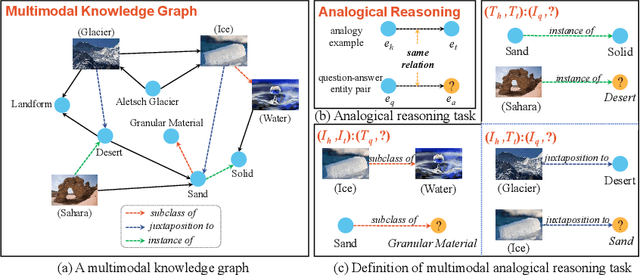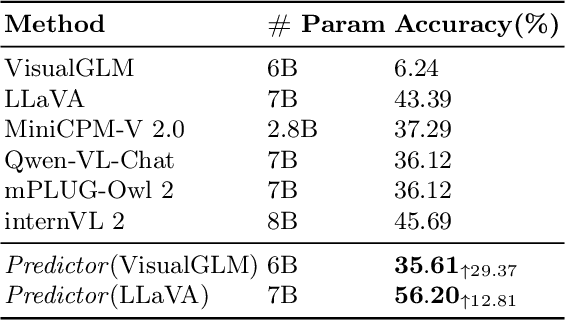Fangfang Yuan
CRAFT: Calibrated Reasoning with Answer-Faithful Traces via Reinforcement Learning for Multi-Hop Question Answering
Feb 01, 2026Abstract:Retrieval-augmented generation (RAG) is widely used to ground Large Language Models (LLMs) for multi-hop question answering. Recent work mainly focused on improving answer accuracy via fine-tuning and structured or reinforcement-based optimization. However, reliable reasoning in response generation faces three challenges: 1) Reasoning Collapse. Reasoning in multi-hop QA is inherently complex due to multi-hop composition and is further destabilized by noisy retrieval. 2) Reasoning-answer inconsistency. Due to the intrinsic uncertainty of LLM generation and exposure to evidence--distractor mixtures, models may produce correct answers that are not faithfully supported by their intermediate reasoning or evidence. 3) Loss of format control. Traditional chain-of-thought generation often deviates from required structured output formats, leading to incomplete or malformed structured content. To address these challenges, we propose CRAFT (Calibrated Reasoning with Answer-Faithful Traces), a Group Relative Policy Optimization (GRPO) based reinforcement learning framework that trains models to perform faithful reasoning during response generation. CRAFT employs dual reward mechanisms to optimize multi-hop reasoning: deterministic rewards ensure structural correctness while judge-based rewards verify semantic faithfulness. This optimization framework supports controllable trace variants that enable systematic analysis of how structure and scale affect reasoning performance and faithfulness. Experiments on three multi-hop QA benchmarks show that CRAFT improves both answer accuracy and reasoning faithfulness across model scales, with the CRAFT 7B model achieving competitive performance with closed-source LLMs across multiple reasoning trace settings.
MuVaC: AVariational Causal Framework for Multimodal Sarcasm Understanding in Dialogues
Jan 28, 2026Abstract:The prevalence of sarcasm in multimodal dialogues on the social platforms presents a crucial yet challenging task for understanding the true intent behind online content. Comprehensive sarcasm analysis requires two key aspects: Multimodal Sarcasm Detection (MSD) and Multimodal Sarcasm Explanation (MuSE). Intuitively, the act of detection is the result of the reasoning process that explains the sarcasm. Current research predominantly focuses on addressing either MSD or MuSE as a single task. Even though some recent work has attempted to integrate these tasks, their inherent causal dependency is often overlooked. To bridge this gap, we propose MuVaC, a variational causal inference framework that mimics human cognitive mechanisms for understanding sarcasm, enabling robust multimodal feature learning to jointly optimize MSD and MuSE. Specifically, we first model MSD and MuSE from the perspective of structural causal models, establishing variational causal pathways to define the objectives for joint optimization. Next, we design an alignment-then-fusion approach to integrate multimodal features, providing robust fusion representations for sarcasm detection and explanation generation. Finally, we enhance the reasoning trustworthiness by ensuring consistency between detection results and explanations. Experimental results demonstrate the superiority of MuVaC in public datasets, offering a new perspective for understanding multimodal sarcasm.
Multi-View Incongruity Learning for Multimodal Sarcasm Detection
Dec 01, 2024Abstract:Multimodal sarcasm detection (MSD) is essential for various downstream tasks. Existing MSD methods tend to rely on spurious correlations. These methods often mistakenly prioritize non-essential features yet still make correct predictions, demonstrating poor generalizability beyond training environments. Regarding this phenomenon, this paper undertakes several initiatives. Firstly, we identify two primary causes that lead to the reliance of spurious correlations. Secondly, we address these challenges by proposing a novel method that integrate Multimodal Incongruities via Contrastive Learning (MICL) for multimodal sarcasm detection. Specifically, we first leverage incongruity to drive multi-view learning from three views: token-patch, entity-object, and sentiment. Then, we introduce extensive data augmentation to mitigate the biased learning of the textual modality. Additionally, we construct a test set, SPMSD, which consists potential spurious correlations to evaluate the the model's generalizability. Experimental results demonstrate the superiority of MICL on benchmark datasets, along with the analyses showcasing MICL's advancement in mitigating the effect of spurious correlation.
Can Multimodal Large Language Model Think Analogically?
Nov 02, 2024



Abstract:Analogical reasoning, particularly in multimodal contexts, is the foundation of human perception and creativity. Multimodal Large Language Model (MLLM) has recently sparked considerable discussion due to its emergent capabilities. In this paper, we delve into the multimodal analogical reasoning capability of MLLM. Specifically, we explore two facets: \textit{MLLM as an explainer} and \textit{MLLM as a predictor}. In \textit{MLLM as an explainer}, we primarily focus on whether MLLM can deeply comprehend multimodal analogical reasoning problems. We propose a unified prompt template and a method for harnessing the comprehension capabilities of MLLM to augment existing models. In \textit{MLLM as a predictor}, we aim to determine whether MLLM can directly solve multimodal analogical reasoning problems. The experiments show that our approach outperforms existing methods on popular datasets, providing preliminary evidence for the analogical reasoning capability of MLLM.
 Add to Chrome
Add to Chrome Add to Firefox
Add to Firefox Add to Edge
Add to Edge